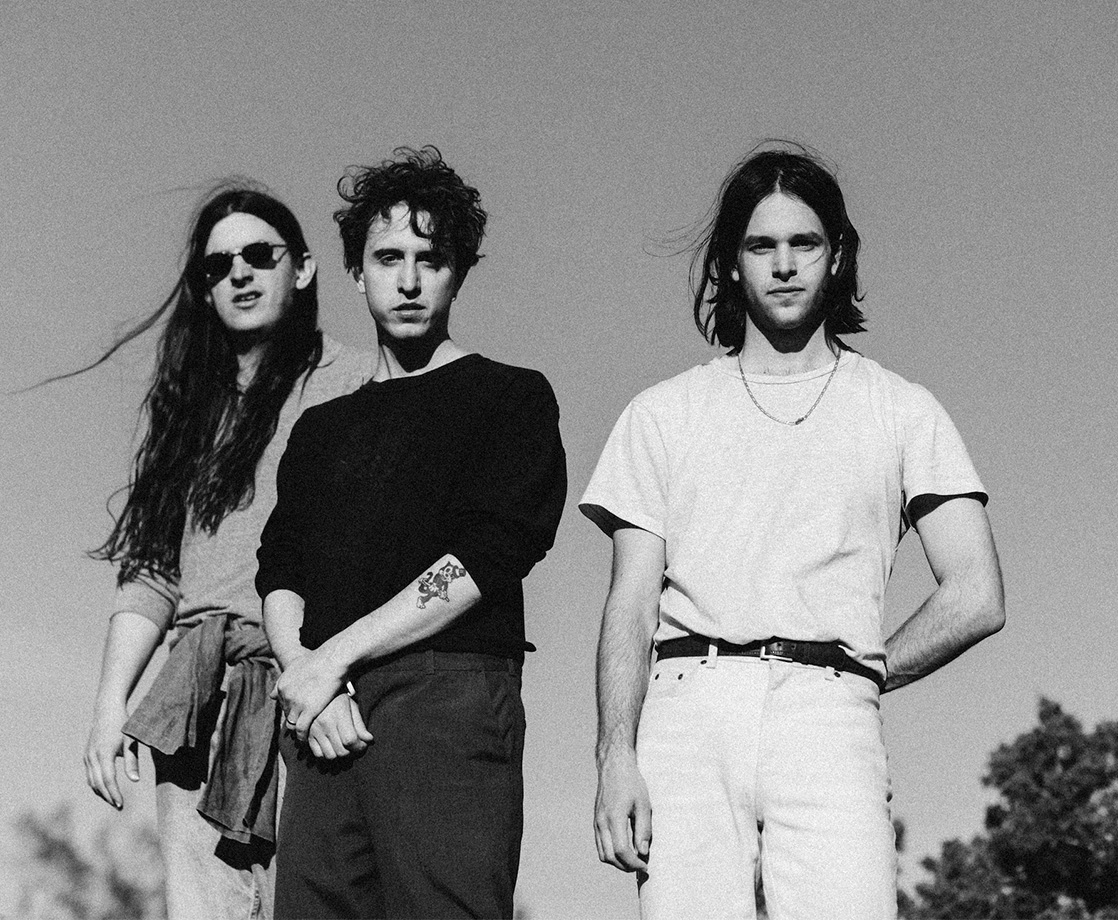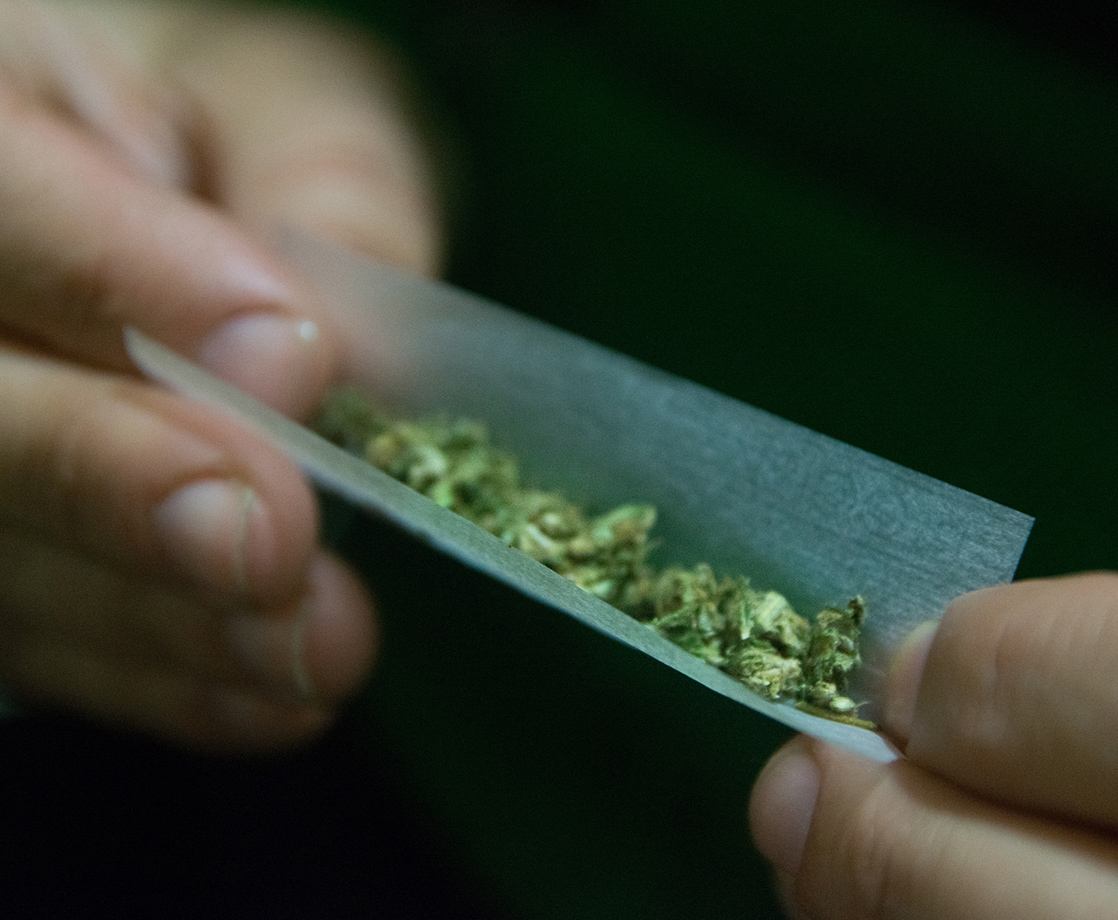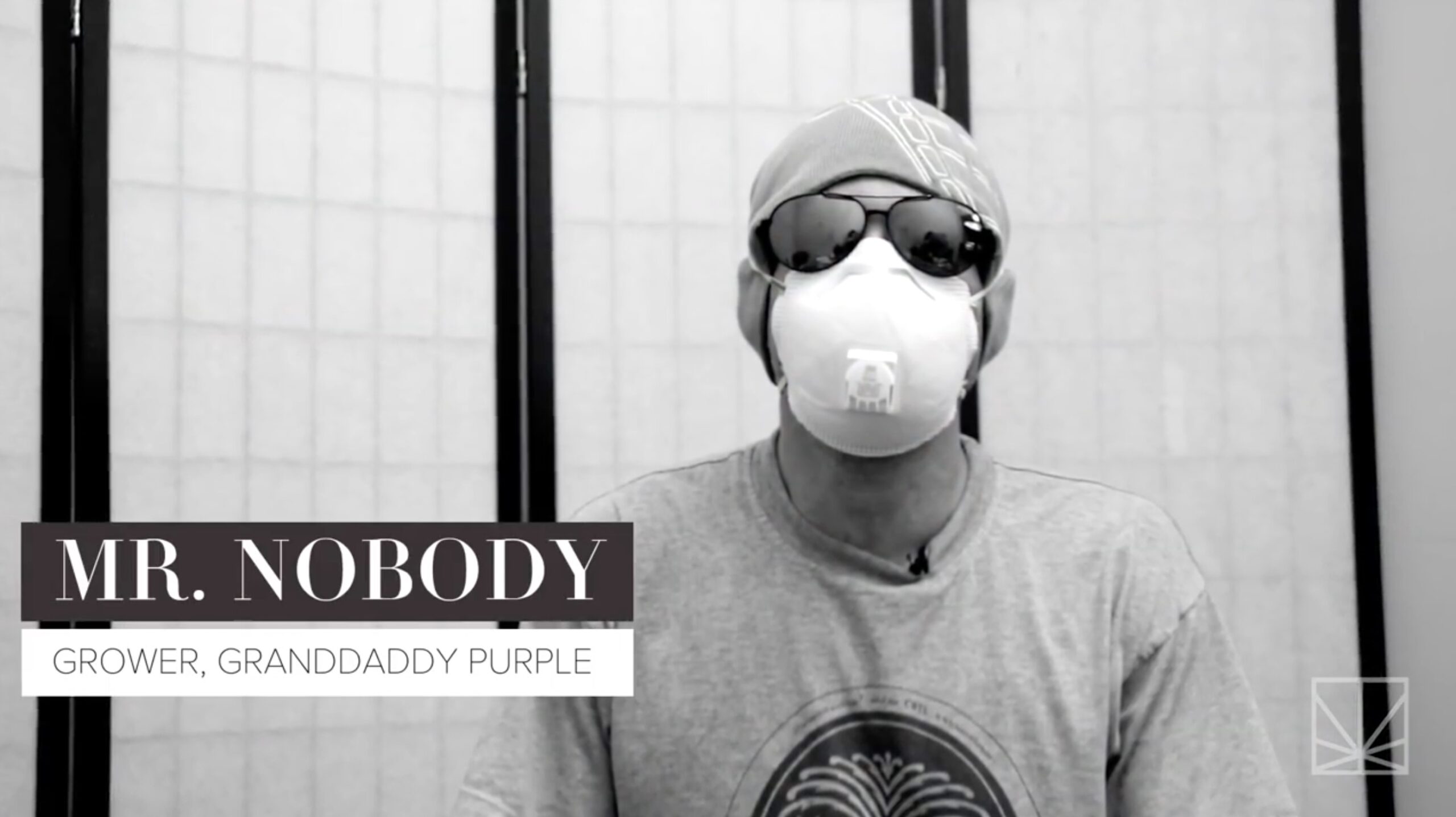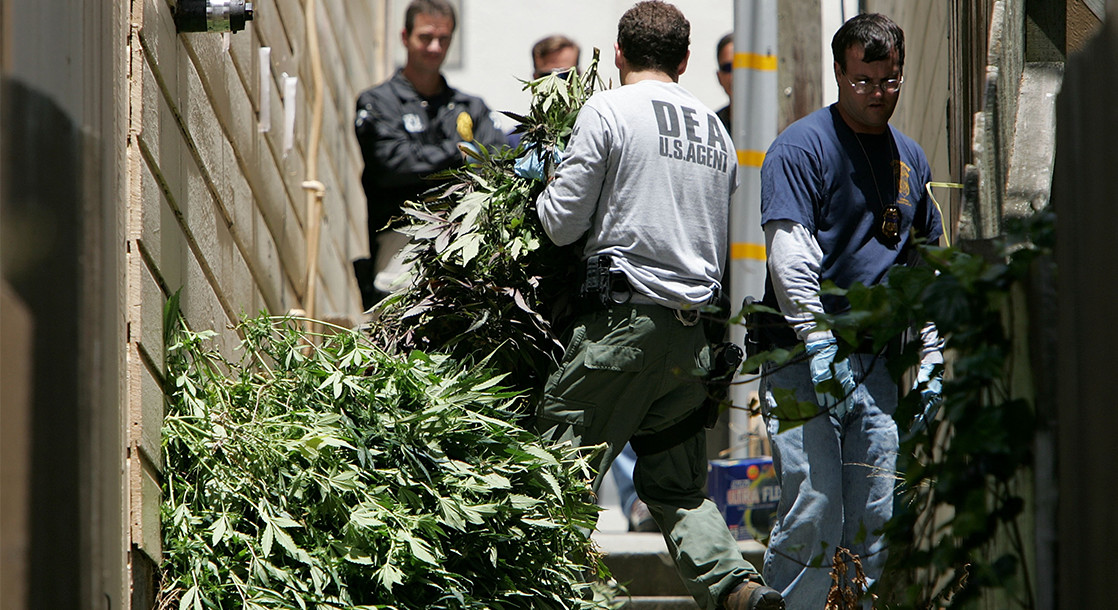Photos courtesy of Pitch Perfect PR
When the indie band Beach Fossils first emerged in Brooklyn around 2009, frontman Dustin Payseur was simply looking for bandmates to help him bring his solo work to the live stage. The lo-fi jams featured on their self-titled debut helped cultivate a dedicated following, but in recent years the band has been experimenting with their sound, evolving it in tandem with Beach Fossils’ growth from DIY darling to cult favorite.
Last week, after a lengthy three-year hiatus, Payseur and co. released their new album Somersault on Bayonet Records, a label started by the frontman and his wife. The 11-track effort that sounds more polished and grandiose than anything Beach Fossils has put out in the past. Songs like “This Year” are lush and packed with both vocal harmonies and a string section, and the single “Saint Ivy” is a baroque pop oddball that wouldn’t feel out of place in The Zombies’ catalog. The release marks a pivot for the beloved Brooklyn group, one that illustrates musical strides and true growth — so much so that it has us asking if more bands should take extended breaks from releasing records.
“We would fuck around way more than practicing our own songs, and that just kind of turned into a thing where someone would come up with really cool ideas,” Payseur told MERRY JANE over the phone. “And then it just started turning into an album. We didn’t even really sit down talk about doing a record together. We were just working on songs and it all came together really naturally.” It definitely helped that the group wasn’t facing label pressure this time around, either.
The recording process for Somersault was as extensive as the time it took to complete it, with sessions at multiple studios across New York City, in an upstate New York cabin, and also at the Los Angeles home studio of Jonathan Rado (from the psychedelic indie outfit Foxygen). But what really sets the project apart from the rest of band’s discography is the fresh introduction of new instruments and production methods, as well as recording as a full group. Whereas Payseur once embodied the Platonic ideal of a bedroom musician in the late aughts, the group now experiments together, with members Tommy Davidson and Jack Doyle Smith actively involved in the entire process. MERRY JANE caught up with the Beach Fossils crew over the phone to discuss their latest record, including how they changed up their whole approach to recording and even some tales about incorporating a little bit of cannabis into the mix.
MERRY JANE: On the new record, you’ve really polished your sound compared to the band’s earlier, more lo-fi work. Can you elaborate on this change of style?
Dustin Payseur: Yeah, you know, I’ve always been adamant about self-producing my music because that’s a big part of the sound. So with the first record and What A Pleasure I was still kind of learning how to do that. The first record was really quick, I literally only used one guitar. All of the bass was played on guitar. I didn’t even have a mic, so I just sang into the Macbook microphone for that album. That’s pretty much that album in a nutshell.
Then I started teaching myself more about production over the years, and with Somersault, it’s been this process of writing songs and coming up with ideas literally over the course of a few years. I think I was just developing my production skills more and finding out more about this specific sound that we wanted.
Outside of production, how did the songwriting approach change on Somersault?
DP: I think the biggest approach is that this is a collaborative effort, it’s the first album that I fully collaborated with other member while the first releases might have one or two songs where I worked with previous members. But this one is an actual band effort where Jack, Tommy, and I got together and worked on the songs together from beginning to end. That makes a huge difference right there. Also, there’s not really keyboards on old Beach Fossils songs. On this one, a lot of the songs were started with Tommy playing something on the keyboards and we were pulling ideas from there.

What were you all up to during the three year hiatus between Clash The Truth and Somersault?
DP: It was a little bit of everything. The first year-and-a-half was just steady touring. We were always on the road, so at that point we’re not really thinking about a new record or writing new material, we were just playing shows and focusing on that. Another thing that took up a lot of my time was starting up my record label with my wife, called Bayonet Records.
That was a really big undertaking, it’s still a really big project for us. We knew we were working on a record and that it would eventually come out, but we didn’t set a timeline. I don’t really care about that whole, “we’ve gotta put this thing out now” thing. When we were on Captured Tracks, it was like having a whole team of people above me telling me you’ve got to have this record out by a certain timeline and pushing myself to do that. But with this, since I’m running the label, we just were free to take as long as we wanted. I didn’t even care if it took ten years, as long as the record was something that we were proud of — that was the most important thing.
The album was recorded in a number of different studios over multiple years. How did this affect the process and final LP?
Jack Doyle Smith: We kind of just wrote it on a part-by-part basis. We were constantly jamming in the New York studio and recording those jams and trying to figure out how to put them together. These different places didn’t really have an impact on the way we wrote them; it was more like a Frankenstein version of songwriting where we just threw parts together.
DP: We were talking about and listening to a lot of ‘90s hip-hop and trip-hop and listening to how all of the samples sort of fit together. And one big thing we talked about from the beginning was sampling our own recording. We kind of ended up doing that in a big way, just recording stuff and fitting all of these parts together almost like how a hip-hop song full of samples would’ve been.
Tommy Davidson: In a very heady way, time and space were one of our biggest influences. We had like six months or so between different tracks, and we would listen to a lot of rap music, electronic music, as well as rock music and everything else. So I think our influences were changing depending on what we were playing on our iTunes or whatever.
Can you talk about working in new instruments and music styles in songs like “Saint Ivy” and “Down The Line”?
DP: I’ve always wanted to make a record that was larger than life in that way. I listen to a ton of jazz and classical music, and I just love the way you can get all of these people playing on a track and it just becomes something bigger than the individuals. It just sets this tone. When we had the string trio come in and play the arrangements that we wrote, it took the songs to a whole new level. It really changed them. I think every instrument brings its own personality.
Speaking of the single “Saint Ivy,” how did that song come together?
TD: This is the one where our go-to phrase “The Frankenstein Method” came into play. It was just like patchworks of various loops we really liked from jams we did — us trying to rack our brains on how we could change the tempo or key of this song, seeing if this verse matched against this chorus. The origin of “Saint Ivy” was a random riff we were jamming on, it’s actually the intro riff. We were playing all together like a year-and-a-half ago, and when we were in Upstate New York in May last year, we recorded a lot of the outro for “Saint Ivy.”
That said, it didn’t really come together until we were at Jonathan Rado’s [of the band Foxygen] place back in October. Jack and I had some time off while Dustin was tracking vocals on another track. We were messing around with figuring out how to work “Saint Ivy” out for the intro. We realized, oh crap, we can patchwork these parts together. That was like one of the last songs we finished, I think.
Do any specific songs on Somersault have a special significance to you?
DP: I think with every single song on the record, the process of making it has brought me to tears. I’m very emotionally attached to all of the songs, both instrumentally and with the lyrics. We wrote the whole record as an instrumental record. I have a bad habit of adding lyrics last. There’s this whole emotion in just writing the instrumentals, and then after that, I was kind of scared to fuck them up with my vocals. So coming back to that stuff was really emotional because it’s all personal stuff. Recording the vocals and writing the lyrics are like separate processes to me. A lot of times I’ll just do one line at a time, when I’m singing those lines it’s still really fresh and really raw, so it’s like fully charged with emotion.
Do you guys ever use cannabis to bolster your music writing process?
DP: I mean, I really didn’t smoke for a while because I tend to get panic attacks and shit, and so sometimes I’ll freak out or get insane anxiety. But for this record, I’d say I was smoking kind of a lot, especially when we were upstate. We’re all complete insomniacs, and I think a majority of this record was recorded between midnight and 8AM. We would start the day in the afternoon, make some food and walk around the lake and stuff. Then we’d come back when the sun was setting and start working on songs. I think getting stoned led to some breakthroughs when I was facing creative blocks. But I definitely think it’s bullshit to say that weed makes people more creative or to use it as a crutch you know? You don’t need it to work on art, but sometimes it can help you tap into something when you’re feeling blocked.
Any certain strains or smoking methods you prefer?
DP: I’m not like a connoisseur by any means, but I’m a fan of indica just because sativa kind of freaks me out and I get too fucked up and can’t do anything. I’m really ADHD and my thoughts will not shut the fuck up. I don’t understand how people like to smoke weed before they go to bed. If smoke weed before I try to go to bed, my thoughts are so fucking loud. It’s like an insane traffic jam in my brain.
Any final thoughts about the album that you want to get out there to the masses?
DP: It’s fucking sick and you’re gonna love it.
"Somersault" is out now via Bayonet Records — order the record here.











